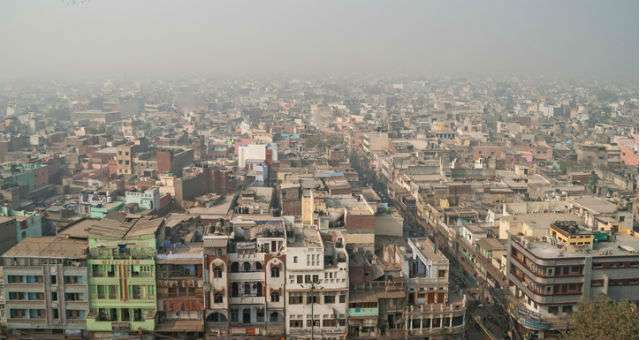Undetermined whether odd-even car trials can combat air pollution in India

A team of UK and Indian researchers, led by Dr Prashant Kumar from the University of Surrey, assessed the impact of 'odd-even' car trials on air pollution in Delhi. The trials involved personal vehicles allowed to drive in the city on alternating days between 8 am and 8 pm depending on whether their registration ended with an odd or even number.
The study, published in Environmental Pollution, found that at certain hours pollution was reduced during the odd-even trial compared with the corresponding days in a previous year, but the impact of the trial was negligible in the morning hours (8 am-11 am) because of the residual pollution caused by overnight goods lorries. The study also found that pollution levels were highest during the winter months and lowest during the monsoon season.
The researchers evaluated the data to produce a first technical assessment on the topic. Recent studies have ranked Delhi as the 'worst' polluted city in the world, and despite numerous schemes to reduce the air pollution level, the high concentrations of the particulate matter still remain a major concern.
The earlier work of the team unraveled causes of pollution in Delhi. They highlighted densely packed architecture, and varying building heights, adding to the 'breathability' of the city being inhibited by its weather conditions. The city's stable dispersion conditions during winters and the pollution from outside Delhi areas make the problem worse during winters while windy and dusty conditions during summer exacerbate this problem.
Dr Prashant Kumar, who led the research, said: "We welcome the attempts to reduce pollution levels but, while the results of this trial seem to suggest it has had an impact, the jury is still out and carefully designed studies are needed if an effect due to traffic alone is to be differentiated from the larger effect caused by changes in traffic volume and meteorology.
"We found that the pollution caused by heavy goods vehicles operating overnight was still prevalent in the morning rush hour, which meant there was no significant reduction in air pollution.
"At the very least, restricting the times of lorries entering Delhi, or compressing their early morning hours when they are allowed into the city, would help to reduce pollution levels during the morning rush hour, as it would give levels time to disperse. It is vital to attempt to control air pollution, especially during the morning hours. This is when children travel to school, commuters to work, and people jog or exercise outdoors, so almost everyone is exposed to pollution at this time."
Co-author Professor Roy Harrison said: "One of the main values of this study has been to highlight the contribution of night-time truck traffic to daytime pollution levels. Strategies designed to remedy Delhi's severe air pollution problems need to be mindful of this fact, and should also consider the role of other nocturnal emissions on daytime air quality."
The other co-author, Professor Mukesh Khare, added "Such studies have the definite potential of identifying the factors affecting the urban ambient pollutant levels as a result of mitigation measures like the recently conducted 'odd-even' trials in Delhi city. Meteorology has been observed as one of the most significant parameters affecting the efficacy of such air pollution management strategies in any urban environment."
More information: Prashant Kumar et al. The influence of odd–even car trial on fine and coarse particles in Delhi, Environmental Pollution (2017). DOI: 10.1016/j.envpol.2017.03.017
Provided by University of Surrey




















